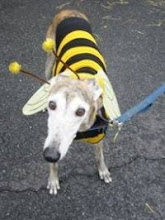I have found that people here do not praise you for speaking beginner's Mongolian. In China, a simple "thank you" may elicit praise. "Oh, you speak Chinese very well!" It's a great ego boost, especially when your last test makes you feel less than adequate in your new language. At the extreme, this fascination and praise breeds a "performing monkey" syndrome: there are televised competitions where foreigners give speeches, sing Peking opera, and do kung fu. I have participated in three such competitions, but I'm not ham enough to ever win. Now I'm content to simply be understood, and to get past the wonder. Once people get to know you, the praise melts away and truthful, useful critique sets in.
So far, no one I have talked to on the street or in a restaurant here has shown symptoms of the Performing Monkey Syndrome. Many waitresses and shopkeepers just roll along with my poor Mongolian. But occasionally someone shows a different kind of interest. Buying orange juice yesterday with two of my classmates, the shopkeeper asked us where we were from. "German?" he asked. "No, Amerik hun (Americans). I'm from Washington, D.C." His face lit up. "Oh, I lived there for two years! Do you know Rosslyn? My apartment was off of Wilson Boulevard." The Washington, D.C. area now has the biggest Mongolian population in the U.S. Approximately 5,000 people live in the area, mostly in Arlington, VA. So in an Asian city of one million people, talking about the Key Bridge is not so strange as it may seem.
Mongolian-Americans used to center in the Denver area. Starting in the 1980s, students starting studying at the Colorado School of Mines, then telling their friends about it when they came back home. (That is, if they did return home; many overstayed their visas, leading to stricter immigration policies in the state.) There are still about 2,000 Mongolians living in Denver, now Ulaanbaatar's sister city. The New Jersey and Chicago communities are runners-up. But in D.C., there are Mongolian schools (two, I believe), Mongolian karaoke joints, and businessmen who summer back home.
The small-world feel of Mongolian studies makes it homey. My classmate Sara and I started our class in earnest yesterday (the other three students are in an advanced section). Introducing ourselves to our teacher, Tsermaa, I mentioned my first Mongolian teachers back in Cambridge, UK. "Oh, Hurelbaatar!" She nodded. "Of course I know him."
May the 4th Be with You
8 months ago

A small world:-)
ReplyDeleteI am glad that you feel at home~~